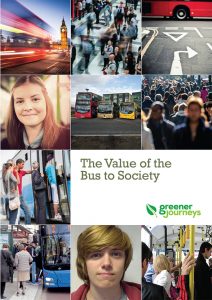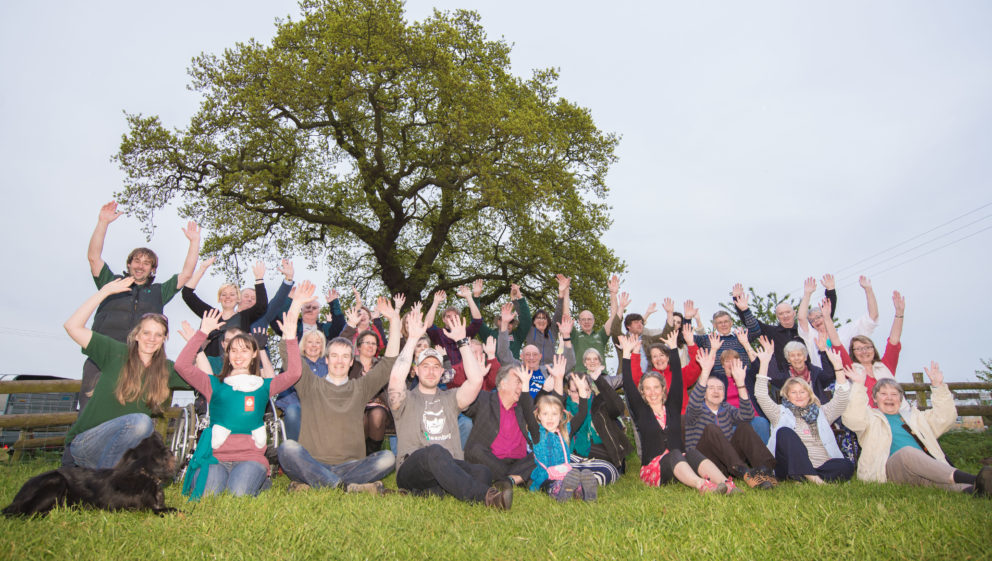News
Improving bus services 'boosts jobs and income for UK’s poorest people'
Wed, 26 October 2016Improving local bus services boosts employment and improves income, helping to reduce social deprivation, according to a new report published by Greener Jou rneys, the sustainable transport group.
rneys, the sustainable transport group.
The research, conducted by KPMG and the Institute for Transport Studies at the University of Leeds, is ground breaking in that it investigates and quantifies for the first time the impact of bus services on tackling social deprivation.
It finds that a 10% improvement in local bus services is linked to a 3.6% reduction in social deprivation across England, taking into account employment, income, life expectancy and skills.
Importantly, it concludes that a 10% improvement in local bus services in the 10% most deprived neighbourhoods across England would result in:
- 9,909 more jobs, the result of a 2.7% fall in employment deprivation
- 22,647 people with increased income, the result of a 2.8% drop in income deprivation
- 2,596 fewer years of life lost
- 7,313 more people with adult skills
- 0.7% increase in post-16 education
The report, The Value of the Bus to Society, demonstrates the important role that buses have in helping to reduce social deprivation in the UK, where 1 in 4 people is at risk of social exclusion, and 1 in 4 people do not have access to a car.
It builds on existing research by Greener Journeys which shows that buses bring huge economic benefits to the UK. Some 3.5 million people in the UK travel to work by bus, and these commuters generate more than £64 billion worth of goods and services per year. Furthermore, proper investment in local bus infrastructure delivers vast rewards, with every £1 spent on local bus priority measures delivering up to £7 in economic benefit.
Among its recommendations, Greener Journeys is calling on Government to prioritise investment in buses and local bus infrastructure. It is also asking decision makers to consider the wider social benefits of projects when appraising transport schemes and investment cases.
Community Business Bright Ideas Fund
Tue, 25 October 2016A new grant programme to help communities develop their budding community business ideas has launched. The £1.85 million fund will offer community groups tailored support and grants of up to £20,000 to develop their ideas. Applications open until end of November. Further rounds in September 2017 and February 2018. Register at: www.bit.ly/2drS4mv

The Do-ocracy Handbook
Tue, 25 October 2016The Transition Town’s movement has published a new 'How To Guide' by Mark Simmonds, entitled 'The Do-Ocracy Handbook: organisational types and legal structures'. Want to take your group or idea to the next level but not sure how? In the new Do-ocracy Handbook Mark Simmonds looks at what organisational forms and legal structures you might need. The how-to guide is packed with information and resources covering legal options, governance arrangements, tax compliance, charitable status and much more. Download it for free: http://bit.ly/2dR107j

Community Chest Funding for Community Buildings
Tue, 18 October 2016Grants of up to £1000 are available to community groups across the area covered by Western Power Distribution. Money can be spent on energy efficiency improvements including roof insulation, heating improvements, double or secondary glazing, draught proofing, energy efficient lighting, energy saving appliances and water reduction measures. NB: some areas of northern Derbyshire and Nottinghamshire are not covered by WPD: find out who your distributer is here: http://bit.ly/2e0D148
Open until the funding runs out, or until 30th November: http://bit.ly/2dvExdN
Divest Derbyshire
Wed, 12 October 2016
A new campaign is calling on Derbyshire County Council to immediately freeze any new investments in fossil fuels and to divest from direct ownership and any commingled funds that include fossil fuel public equities and corporate bonds within five years. The organisers of Divest Derbyshire believe this is important because the council’s pension fund currently has £290 million invested in fossil fuel industries include Royal Dutch Shell, BP and Rio Tinto, and fossil fuels need to stay in the ground if we’re going to prevent the catastrophic climate change. Fossil fuels are also becoming a riskier investment as they become more expensive to find and extract.
The petition is supported by the following Derbyshire organisations: Calow Against Gas Extraction (CAGE); Derby Climate Coalition; Glossopdale Transition Initiative; Melbourne Area Transition; Sustainable Edale; Sustainable Hayfield; Transition Belper; Transition Chesterfield; Transition Hope Valley; Transition Matlock; Transition New Mills. Transition Wirksworth; University of Derby Students’ Union.
As we wrote this news item the petition had 282 signatures and was aiming to get to 300 – could you be part of the push to reach 300? Sign the petition and/or have your organisation’s name added to the list of supporters: http://bit.ly/1jAtfHa
